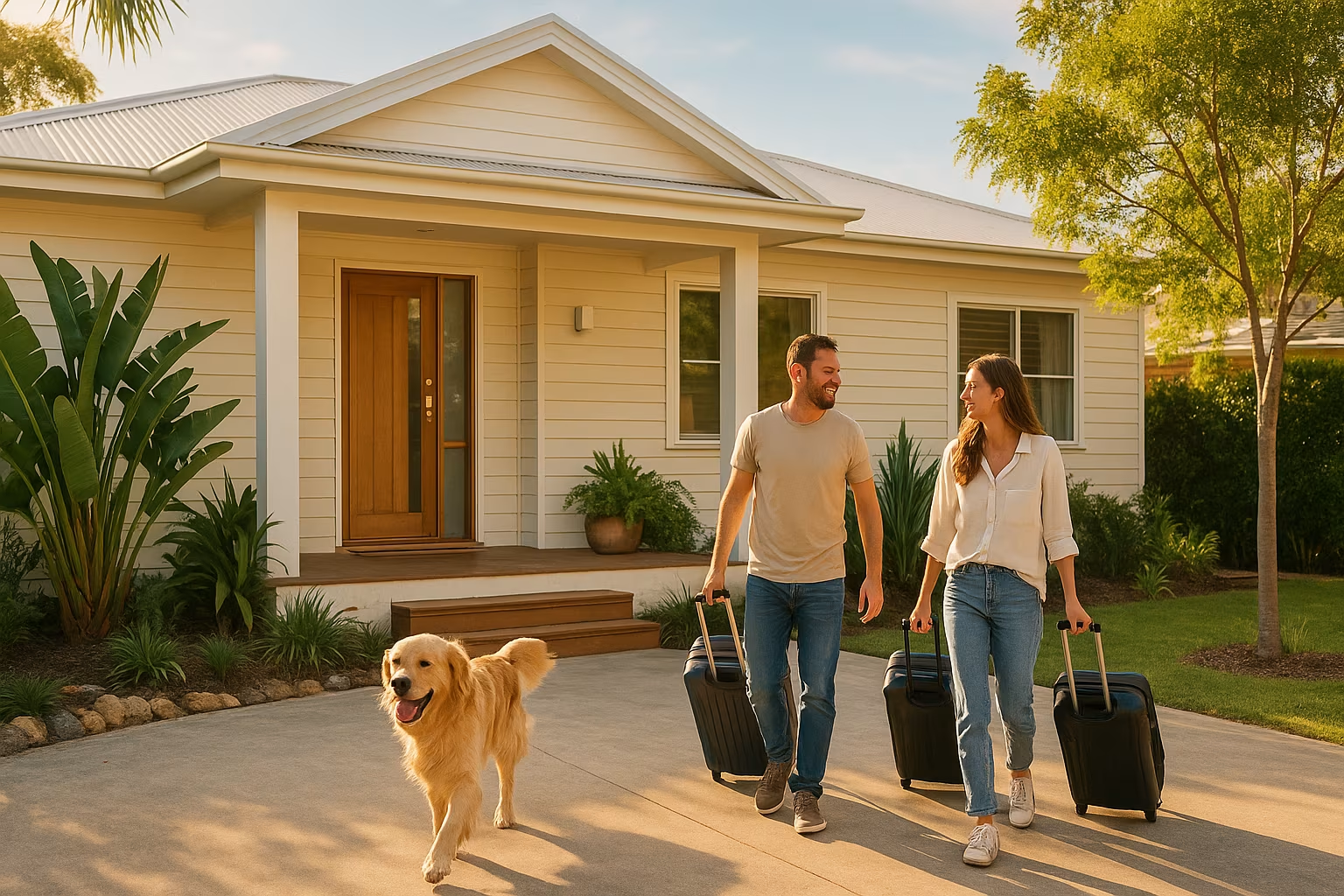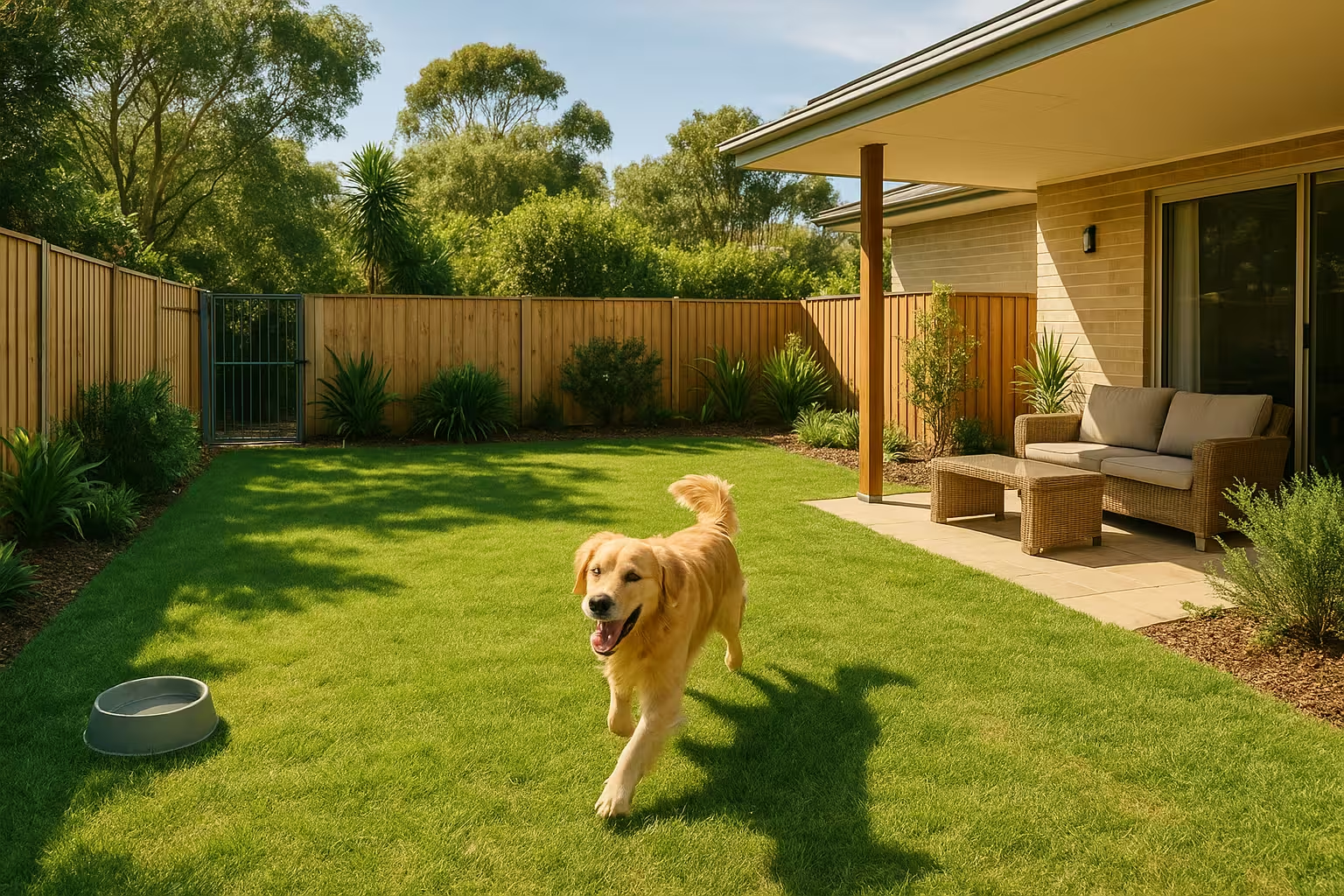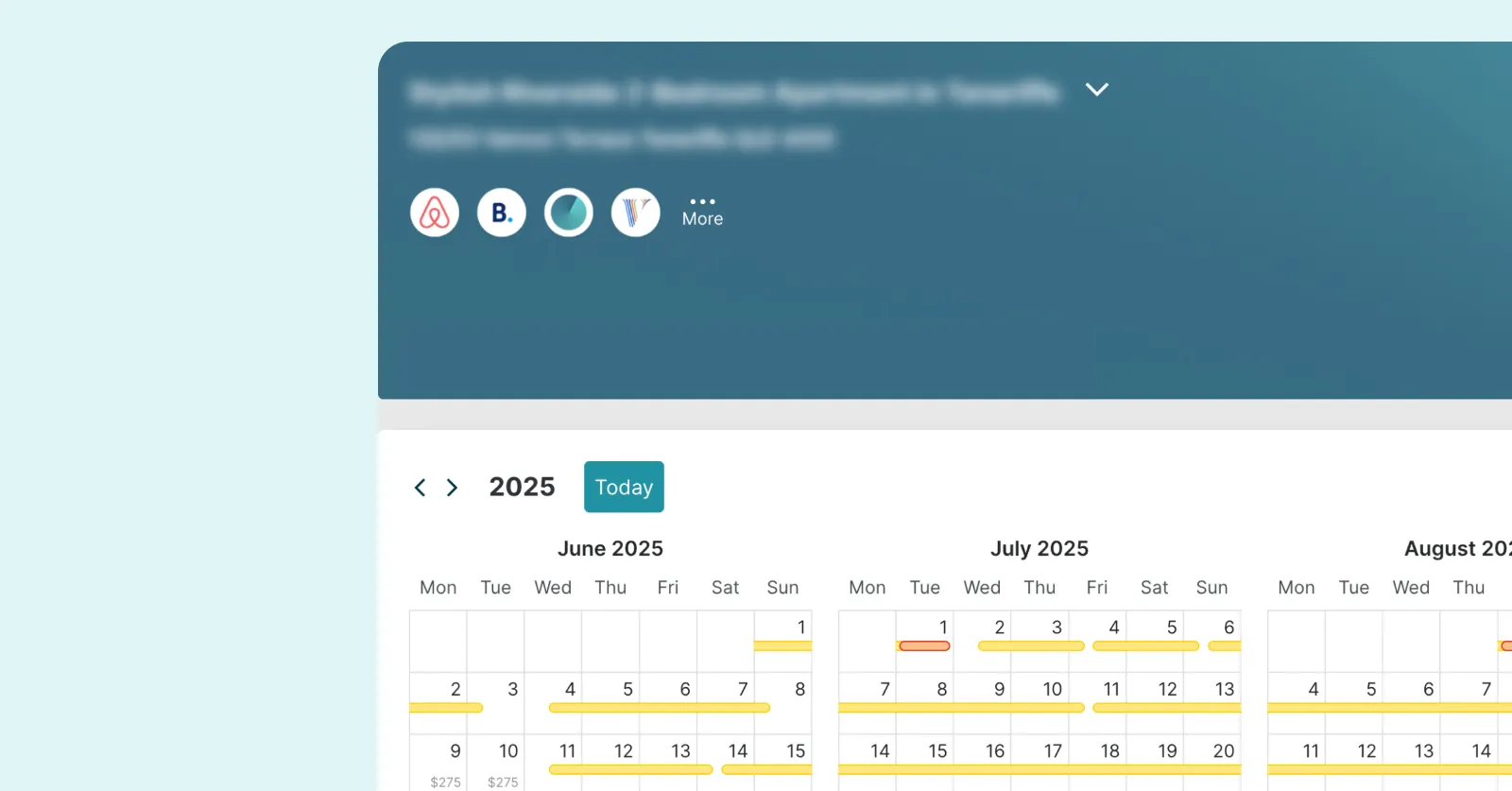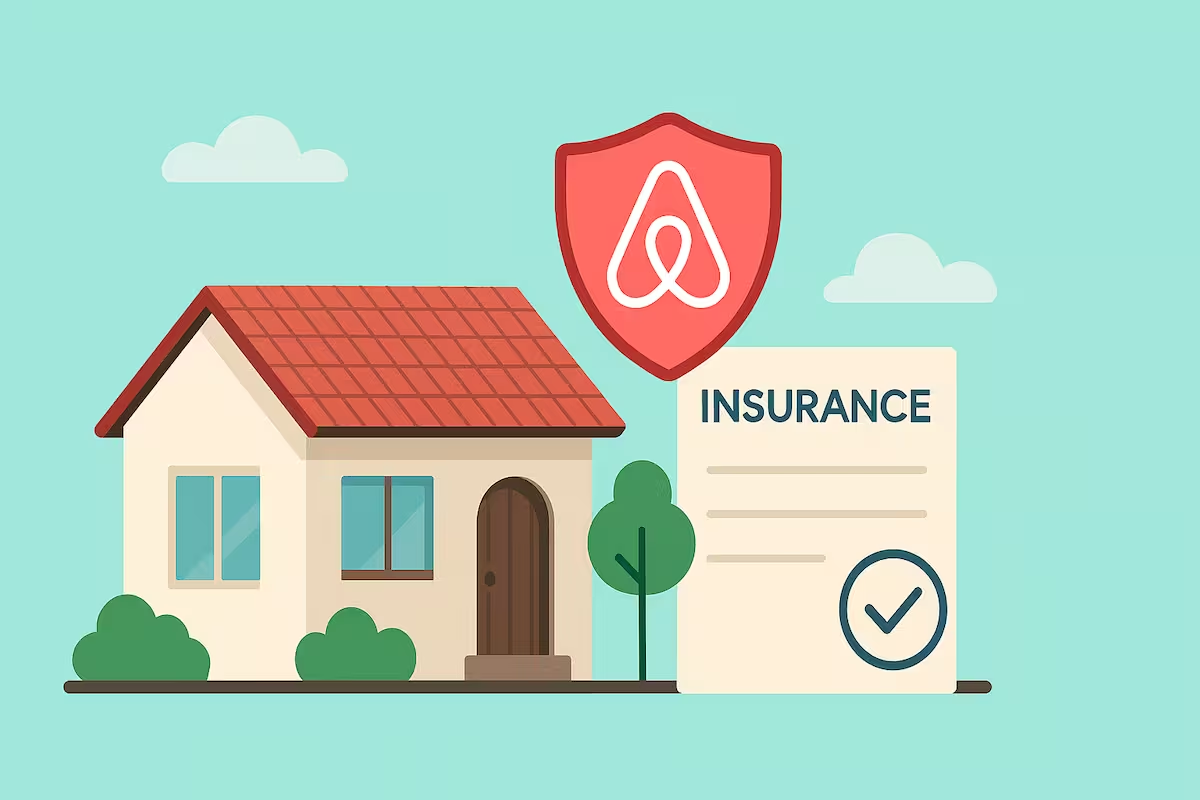Is Your Airbnb Pet-Friendly? Here’s Why It Should Be

A growing share of Aussie and Kiwi travellers are bringing their pets along for weekends away and longer escapes. Yet in many markets, the supply of pet‑friendly short‑term rentals still lags well behind demand. If your Airbnb doesn’t welcome pets, you’re likely leaving money on the table—especially in suburban and regional areas where families road‑trip with dogs. With the right rules, fit‑out and pricing, you can open your property to a high‑value segment while keeping your asset protected.
Demand snapshot: Why a pet friendly Airbnb wins in AU/NZ (60%+ households own pets)
Australia and New Zealand are pet nations. Around 69% of Australian households and 64% of New Zealand households have at least one pet, so a large slice of domestic travellers will filter for pet‑friendly stays. Major booking platforms report “pets allowed” as one of the most-used search filters, and Airbnb has seen strong growth in pet‑inclusive nights since 2019—clear signs that demand is both real and rising.
Supply hasn’t kept pace in many destinations. Operators who accept pets typically see a booking uplift, with pet‑friendly listings drawing longer stays and higher occupancy than non‑pet alternatives. This is particularly pronounced in regional and coastal locations where guests build trips around their dogs, and in shoulder seasons when pet‑friendly options can capture bookings others miss.
The revenue upside from hosting pets STR: occupancy, ADR and length of stay
AirDNA data from 2023–24 shows pet‑friendly listings in key Australian leisure markets such as the Gold Coast, Sunshine Coast and Mornington Peninsula achieving roughly 5–12 percentage points higher occupancy than comparable non‑pet homes, with the advantage widest outside peak periods. That extra utilisation smooths cash flow and reduces reliance on school holidays.
Allowing pets can also lift effective ADR without discounting. Many hosts charge a per‑stay pet fee of about $50–$150 (or $10–$30 per night), adding ancillary revenue while keeping base rates competitive. On top of that, pet‑inclusive bookings tend to run 0.5–1.5 nights longer in regional and coastal markets—spreading cleaning costs across more nights and increasing total booking value.

Risk controls that protect your asset: screening, house rules, pet bonds and insurance
Start with screening and crystal‑clear rules. Airbnb uses verified ID and reservation screening to help block risky stays; reinforce this with concise pet house rules covering the number/size of pets, flea treatment, supervision, outdoor toileting, and “no pets on beds” unless using provided covers. If your property is in a strata building, reference any by‑laws in your rules (as required under NSW’s STRA Code) and obtain written acceptance of rules via the platform so breaches are easier to enforce.
Avoid separate “pet bonds”. In Australia, pet bonds are tightly regulated—only WA permits a pet bond in long‑term leases (capped and for fumigation), and they’re not appropriate for short stays. Use platform pet fees and written consent instead. Remember, accredited assistance animals must be accepted and cannot attract extra charges under disability discrimination law. Finally, don’t rely on AirCover alone: while Airbnb offers up to US$3 million in host damage protection, it’s not an insurance policy. Consider an Australian short‑stay policy that explicitly covers guest pet damage, extra cleaning/fumigation and public liability.
Fit-out and operations: durable materials, outdoor areas, cleaning standards and pet amenities
Design for durability and speed of turnaround. Opt for scratch‑ and moisture‑resistant hard floors like porcelain tiles or hybrid vinyl, use washable semi‑gloss paints, and add removable, machine‑washable slipcovers. Mattress and doona protectors are inexpensive safeguards that cut odours and reduce replacement costs—recommendations echoed by platform hosting guides and local design advice.
Outdoors, a fully fenced yard with self‑closing gates, shade and constant water is both guest‑friendly and aligned with RSPCA welfare guidance. Place pet waste bags and a lidded bin by exits to support responsible disposal—councils can fine for dog‑waste breaches. Set a pet‑ready cleaning standard: HEPA‑filter vacuuming, 60°C hot‑wash for linens, and enzyme cleaners for accidents (as advised by the National Asthma Council and CHOICE). Stock bowls, washable throws/towels, a lint roller and an outdoor hose or dog‑wash, and reiterate “pets off beds unless covered” in your listing.
Pricing and fees strategy: how to set pet fees, deposits and minimum stays
On Airbnb, pet fees are added in pricing settings and apply per reservation (not per night or per pet). The platform no longer supports host‑set security deposits, so avoid “pet bonds”; rely on AirCover for damage protection and use the Resolution Center to recover reasonable extra cleaning or damages when needed. Keep your fee modest to widen appeal while covering incremental wear and cleaning.
Be transparent. Under Australian Consumer Law and ACCC enforcement on drip pricing, any mandatory pet charges must be disclosed upfront and included in the total price—no cash‑on‑arrival surprises. If you’re GST‑registered, pet fees form part of the taxable accommodation charge. To protect margins without scaring off demand, pair a reasonable per‑stay pet fee with a two‑night minimum for pet bookings.
Compliance checklist: strata/body corporate, council bylaws and platform rules
Strata and body corporate rules come first. In NSW and QLD, blanket “no pets” by‑laws are unlawful, but approvals and reasonable conditions (e.g., leashes on common property, waste and noise controls) can apply. Obtain written approval where required and embed those conditions into your Airbnb house rules to avoid breaches and disputes.
Check council bylaws under state legislation such as the NSW Companion Animals Act, Victoria’s Domestic Animals Act or Queensland’s Animal Management Act. Understand leash and waste requirements, limits on the number/type of animals and nuisance provisions that carry fines. Ensure secure fencing/containment for houses, and for apartments, specify how pets move through common areas. Platform rules also matter: Airbnb requires hosts to accept assistance animals in Australia, even if you don’t permit pets otherwise, and you cannot charge extra fees for them. Align your listing’s rules and fees with local laws and building by‑laws.
Make your Airbnb pet friendly with MadeComfy — Talk to a short-term rental expert
With 69% of Australian households owning a pet, opening your doors to four‑legged guests taps the majority of domestic travellers and can materially lift occupancy and booking value. MadeComfy sets clear pet rules and pricing that protect your property while capturing demand, and we keep you compliant—assistance animals are welcome by law, and we ensure your listing reflects that alongside practical screening and cleaning protocols. For strata properties, including NSW schemes where blanket bans were removed in 2021, we align your house rules with building by‑laws so you can confidently host pets in apartments.
Ready to unlock higher occupancy with a pet‑friendly strategy? Talk to a MadeComfy short‑term rental expert and get a free short‑term rental income estimate.



.webp)
.png)



.png)




![[Video] Why is short-term rental the best choice for your property?](https://cdn.prod.website-files.com/62424e2368138bbce27b7ba7/64895ae54325bd7562bd62d8_62e0aeef16206d318472f2fd_46.jpeg)



![How to write the perfect Airbnb listing [Guide]](https://cdn.prod.website-files.com/62424e2368138bbce27b7ba7/64895adb9095455fa4c59e07_62e08c76f7203c3deae22bb0_53.jpeg)

![[Video] Airbnb maintenance for short-term rentals](https://cdn.prod.website-files.com/62424e2368138bbce27b7ba7/64895adcc0a2086ed3dff11a_62de105e132cbef04c318949_70.jpeg)
















![What to offer Airbnb guests - [7 essential tips]](https://cdn.prod.website-files.com/62424e2368138bbce27b7ba7/64be134b0499d4b9ed58a4cd_64a4c32e14f9983555bf52b9_What%2520to%2520offer%2520Guests%2520-%25207%2520essential%2520tips.jpeg)


![[Infographic] Airbnb guest expectations](https://cdn.prod.website-files.com/62424e2368138bbce27b7ba7/64895ae0c0a2086ed3dff469_62d79f3be7b9b7b86e7b6b11_60.jpeg)


.jpeg)





